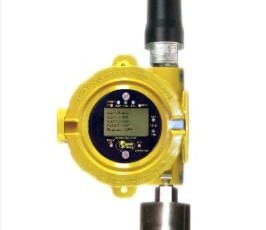Wireless gas detection systems have made their way onto the industrial market. While going wireless seems to be the big trend in new technology, this is not always to the user’s advantage. However, there are some particular advantages of wireless gas detection that, for some companies, may outweigh the potential disadvantages.
Advantages
Wireless gas detection systems are a great way to spend less time setting up and more time on the job. Many factories are required by law to have a gas detection system in place before work can begin. This is also true of drilling rigs. Hardwired gas detectors can take up to two weeks to implement and calibrate before any money can be made on the project. This is because wires have to be trenched in the ground and buried. Conversely, wireless detectors usually only take a few days at the most to set up. Wireless systems are also made to withstand a wider range of temperatures and weather changes. Hardwired systems sometimes tend to fail in particularly harsh winter climates; wireless detectors can withstand temperatures all the way down to -40 degrees Fahrenheit.
Wireless systems can also be connected to the Internet for available readings at any given time. This allows all safety managers to view gas levels at all points of the project. Systems of this nature are especially beneficial on work sites in which there have been previous accidents and leaks. It is also a great way to closely monitor confined spaces in which higher gas levels can nearly instantly turn the air into poison.
Disadvantages
As for disadvantages to the wireless gas detection system, there don’t seem to be many. Most users are perfectly happy with the service provided by their wireless system. Some complain that they need to be calibrated more often. This can add up if you are continually buying gas calibration kits. Additionally, the wireless system is not cheap. Anyone looking for an inexpensive detector to do the bare minimum of what is necessary under the law will not be happy with a wireless system. Safety is one of the most important aspects of running a business, especially one that encounters these types of dangers on a regular basis. If you are concerned about budget, a hardwired system will still get the job done.
All things considered, the reliability and real-time level monitoring provided by wireless gas detection systems makes them the top-of-the-line solution for gas leaks. The initial cost may be enough to deter you from pursuing this option, but consider what type of business you run. If you have a small confined space prone to frequent accidents, you will be glad you went with the wireless system. However, if your building is large and open-air, wired systems may be the better solution.

